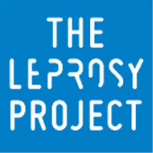In July nine volunteers from Xichang College received training from Project staff Kelly Xu, Fang Jingru, Rihai Riga and Make Hamo.
Kelly Xu and Fang Jingru explained the conditions in the villages and discussed their own experiences in communicating with villagers. Staff established targets for health and hygiene education and expected results. Volunteers enthusiastically engaged in the training and gave many useful comments.
Through the training, staff was able to create templates for future training in other villages. The format for data collection was also enhanced in order to refine the assessments of hygiene performance.
After the training, the staff and nine volunteers traveled to Qianjin, a remote mountain village in Xide County with a population of 500. Due to the remote location, many of the elderly residents have never left the village and the children have received little education. Most of the villagers have no concept of personal or household hygiene. The poor standard of sanitation in the community leads to the easy transmission of many infectious diseases.
The Project staff and volunteers started by giving basic training to 42 students from the village. The three groups then visited each home in the village to talk about hygiene and the effect it has on health.
Every household received training in home hygiene, including cleaning furniture and floor, sweeping the areas around their home, and washing their clothes and bedding. Both students and their parents were keen to participate. Villagers understand that they must persist in keeping their home and the village clean to help prevent the spread of disease and to beautify the village.
Kelly Xu and Fang Jingru explained the conditions in the villages and discussed their own experiences in communicating with villagers. Staff established targets for health and hygiene education and expected results. Volunteers enthusiastically engaged in the training and gave many useful comments.
Through the training, staff was able to create templates for future training in other villages. The format for data collection was also enhanced in order to refine the assessments of hygiene performance.
After the training, the staff and nine volunteers traveled to Qianjin, a remote mountain village in Xide County with a population of 500. Due to the remote location, many of the elderly residents have never left the village and the children have received little education. Most of the villagers have no concept of personal or household hygiene. The poor standard of sanitation in the community leads to the easy transmission of many infectious diseases.
The Project staff and volunteers started by giving basic training to 42 students from the village. The three groups then visited each home in the village to talk about hygiene and the effect it has on health.
Every household received training in home hygiene, including cleaning furniture and floor, sweeping the areas around their home, and washing their clothes and bedding. Both students and their parents were keen to participate. Villagers understand that they must persist in keeping their home and the village clean to help prevent the spread of disease and to beautify the village.

 RSS Feed
RSS Feed
